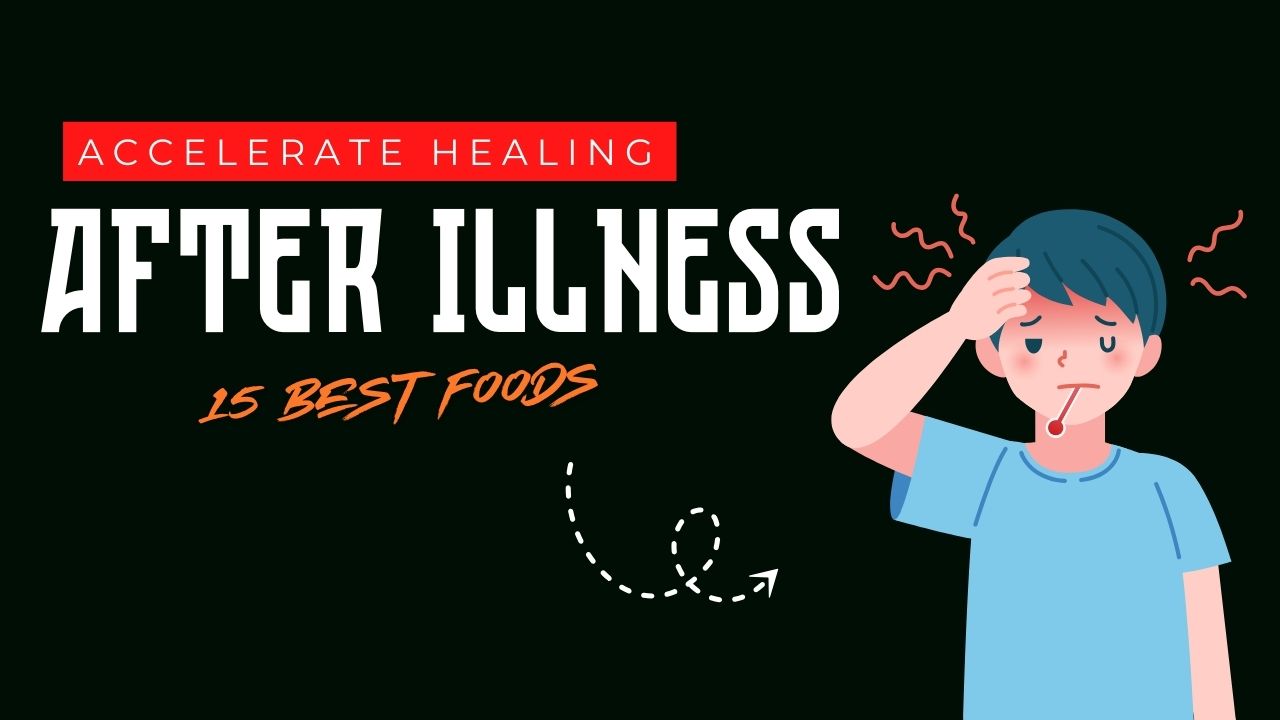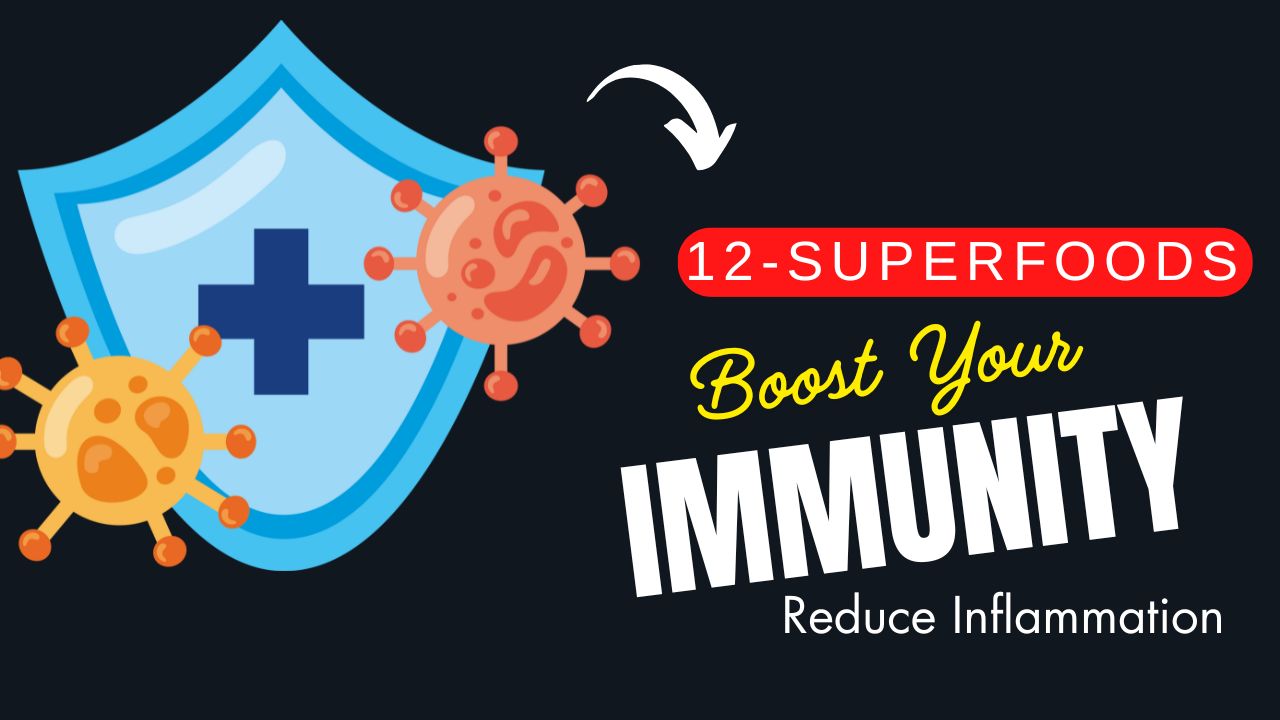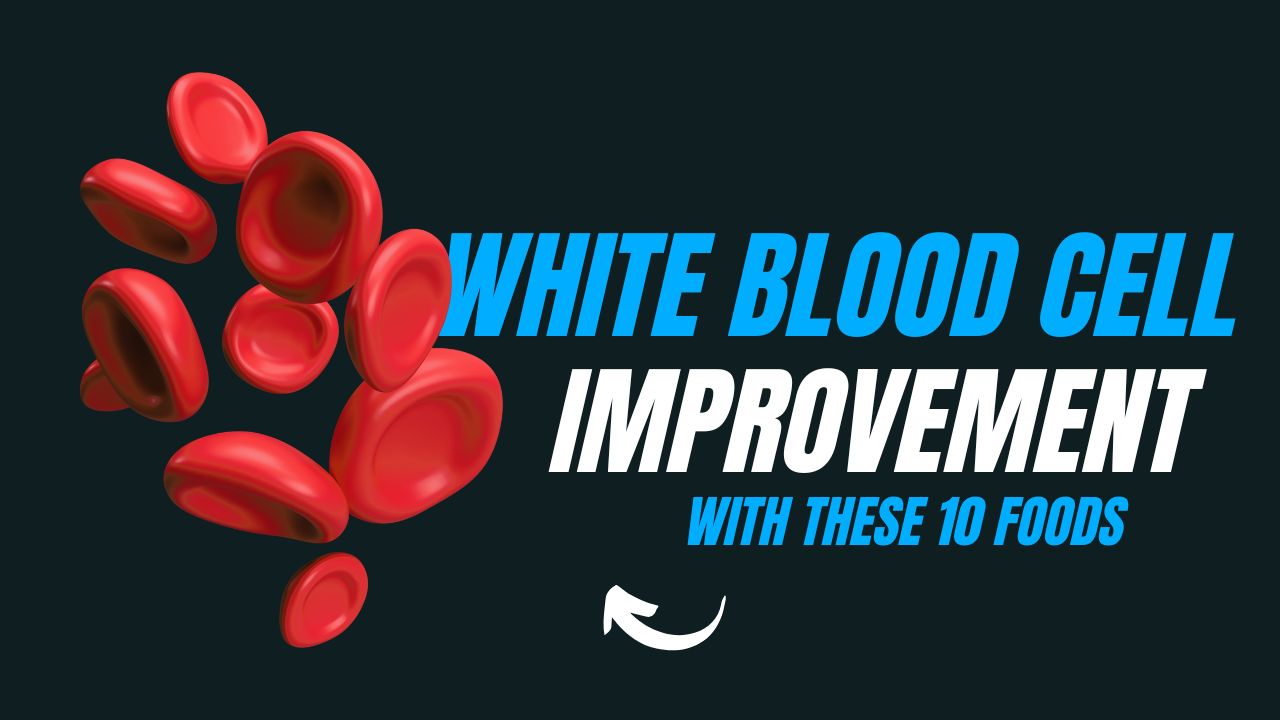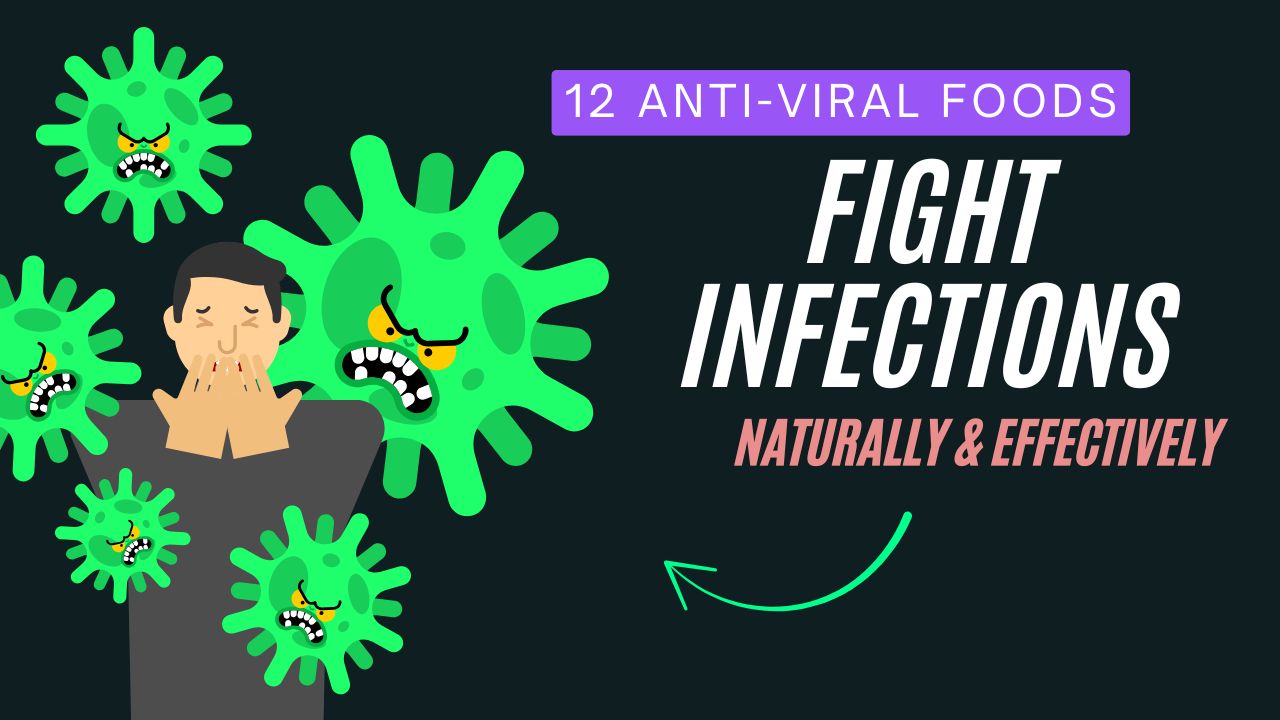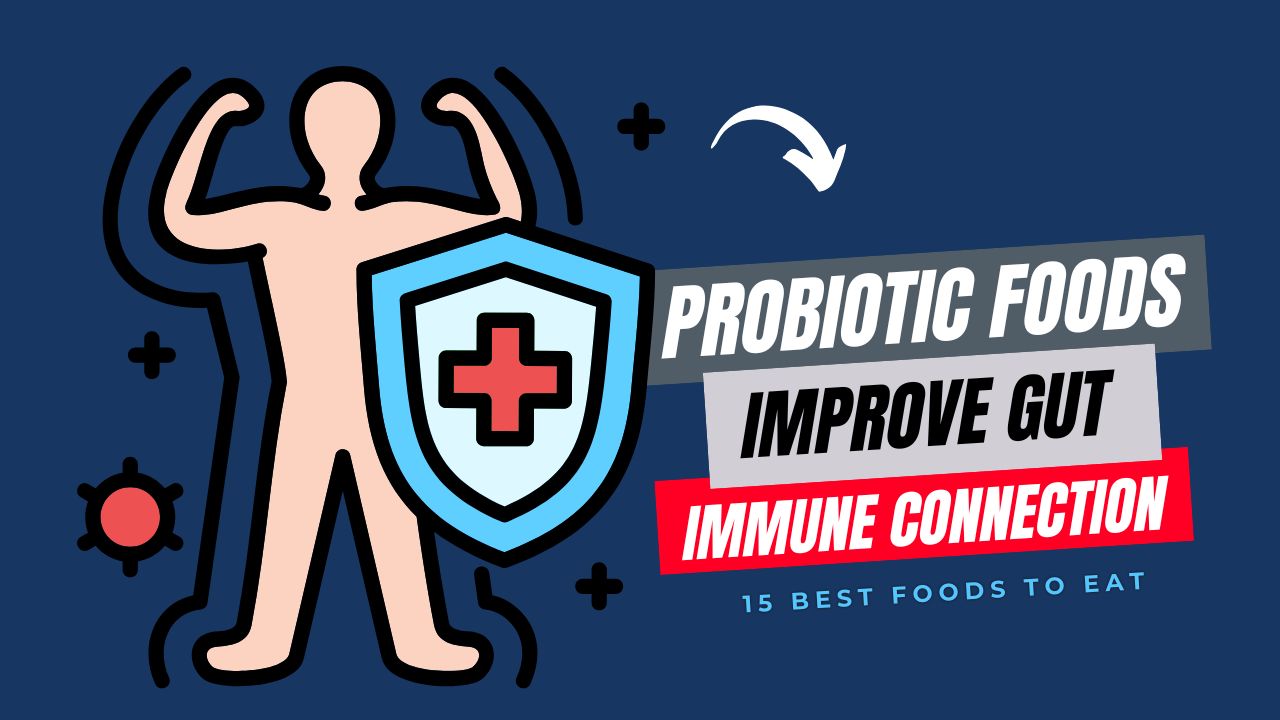Do you know that your white blood cells are like your body’s personal army? These tiny defenders are the backbone of your immune system, constantly on patrol to detect and destroy harmful invaders such as bacteria, viruses, and toxins. Without them, even the smallest infection could pose a serious risk.
But here’s the catch: your diet directly impacts how strong and effective your white blood cells are. Just like soldiers need proper training and equipment, white blood cells need the right nutrients to multiply, stay active, and fight infections efficiently.
In this article, we’ll explore 10 powerful foods that improve white blood cell function, helping you strengthen your immunity naturally. You’ll also discover:
- The best ways to eat or use each food for maximum benefits.
- Who should eat or avoid these foods.
- Storage and buying tips for freshness.
- Do’s & Don’ts for each food.
- Possible side effects you should be aware of.
Let’s dive into the list of foods that can keep your immune system sharp and ready.
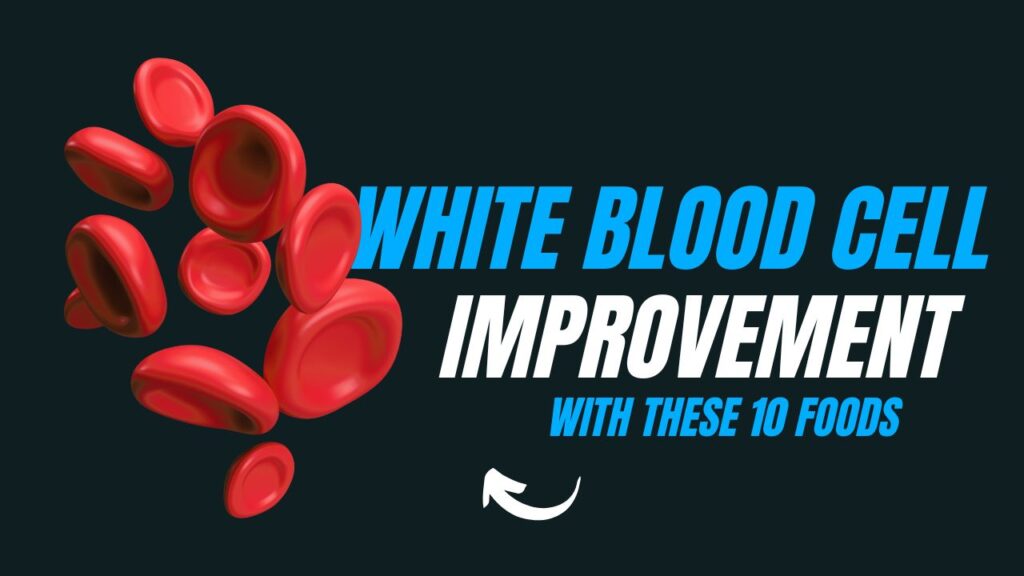
Table of Contents
10 Best Foods To Improve WBC Functions
1. Citrus Fruits (Oranges, Lemons, Grapefruits)
Citrus fruits are the poster child of immune-boosting foods. They are rich in Vitamin C, which stimulates the production of white blood cells and strengthens their ability to fight infections.
Best Ways to Eat or Use It
- Fresh juice (without added sugar).
- Add lemon slices to warm water in the morning.
- Snack on orange wedges.
- Use in fruit salads.
Tip: Pair citrus fruits with iron-rich foods (like spinach) to improve iron absorption, which indirectly supports white blood cell function.
Who Should Eat / Avoid
- Good for: People with weak immunity, those prone to seasonal colds, athletes, and pregnant women.
- Avoid if: You suffer from acid reflux, citrus allergies, or kidney stones (high in oxalates).
Storage & Buying Tips
- Buy firm, brightly colored fruits.
- Store in a cool, dry place or refrigerate.
- Use within 1 week for maximum vitamin C.
Do’s & Don’ts
✅ Do: Eat them raw for maximum vitamin C.
❌ Don’t: Store cut citrus fruits uncovered; vitamin C degrades quickly.
Possible Side Effects
- Excessive consumption may lead to stomach acidity.
- Grapefruit may interact with certain medications.
2. Garlic
Garlic isn’t just for flavor—it’s a natural immune enhancer. It contains allicin, a compound that boosts white blood cell activity and helps fight infections.
Best Ways to Eat or Use It
- Add raw chopped garlic to salads or dips.
- Use lightly cooked garlic in stir-fries.
- Mix with honey for a natural cold remedy.
Tip: Crush garlic and let it sit for 10 minutes before cooking to activate allicin.
Who Should Eat / Avoid
- Good for: People prone to infections, those with high blood pressure (garlic helps regulate it too).
- Avoid if: You’re on blood-thinning medication or have stomach ulcers.
Storage & Buying Tips
- Buy firm, dry bulbs without green shoots.
- Store in a cool, dry place; don’t refrigerate.
- Use within 3–4 weeks.
Do’s & Don’ts
✅ Do: Use fresh garlic instead of powdered for maximum benefits.
❌ Don’t: Overcook garlic; heat destroys allicin.
Possible Side Effects
- May cause bad breath and stomach upset in excess.
- Can thin the blood, so caution is needed before surgery.
3. Spinach
Spinach is loaded with Vitamin C, beta-carotene, and antioxidants, which enhance white blood cell activity and repair DNA damage in cells.
Best Ways to Eat or Use It
- Add raw baby spinach to salads.
- Blend into green smoothies.
- Lightly steam to preserve nutrients.
Tip: Pair with olive oil for better absorption of fat-soluble vitamins.
Who Should Eat / Avoid
- Good for: People with weak immunity, children, athletes.
- Avoid if: You have kidney stones (spinach is high in oxalates).
Storage & Buying Tips
- Choose crisp, dark green leaves.
- Store in a plastic bag in the refrigerator.
- Use within 3–5 days.
Do’s & Don’ts
✅ Do: Wash thoroughly to remove pesticides.
❌ Don’t: Overcook; it reduces vitamin C levels.
Possible Side Effects
- Can contribute to kidney stones if consumed in very large amounts.
4. Yogurt
Yogurt is packed with probiotics, the healthy bacteria that support gut health and stimulate white blood cell activity.
Best Ways to Eat or Use It
- Eat plain Greek yogurt for breakfast.
- Add fruits and nuts for extra nutrients.
- Use in smoothies or dips.
Tip: Choose unsweetened yogurt with “live & active cultures” for maximum probiotic benefits.
Who Should Eat / Avoid
- Good for: People with digestive issues, children, and seniors.
- Avoid if: You are lactose intolerant or allergic to dairy.
Storage & Buying Tips
- Buy yogurt close to the production date.
- Store in the refrigerator at all times.
- Consume within a week of opening.
Do’s & Don’ts
✅ Do: Opt for low-fat, unsweetened versions.
❌ Don’t: Leave yogurt unrefrigerated for long periods.
Possible Side Effects
- May cause bloating or gas in lactose-intolerant people.
5. Ginger
Ginger is known for its anti-inflammatory and antioxidant properties. It boosts white blood cell function by reducing oxidative stress.
Best Ways to Eat or Use It
- Add fresh ginger to teas.
- Use grated ginger in stir-fries and soups.
- Blend into smoothies.
Tip: Combine ginger with lemon and honey for a powerful immune-boosting drink.
Who Should Eat / Avoid
- Good for: Those prone to flu, athletes needing recovery.
- Avoid if: You have gallstones or are on blood-thinning medication.
Storage & Buying Tips
- Buy fresh, firm ginger roots.
- Store in the refrigerator wrapped in paper towels.
Do’s & Don’ts
✅ Do: Use fresh ginger over powdered for stronger benefits.
❌ Don’t: Overconsume; it can cause heartburn.
Possible Side Effects
- Excessive intake may cause diarrhea or stomach upset.
6. Almonds
Almonds are rich in Vitamin E, a powerful antioxidant that helps white blood cells fight off infections.
Best Ways to Eat or Use It
- Eat a handful of raw or soaked almonds daily.
- Add to smoothies, salads, or oatmeal.
- Use almond butter as a spread.
Tip: Soak almonds overnight for easier digestion and nutrient absorption.
Who Should Eat / Avoid
- Good for: Students, athletes, and those needing a brain boost.
- Avoid if: You have nut allergies.
Storage & Buying Tips
- Buy unsalted, raw almonds.
- Store in an airtight container in a cool place.
Do’s & Don’ts
✅ Do: Eat them in moderation (10–15 per day).
❌ Don’t: Consume sugar-coated or fried almonds.
Possible Side Effects
- Overeating may cause weight gain.
7. Green Tea
Green tea contains catechins, antioxidants that boost white blood cell function and fight infections.
Best Ways to Eat or Use It
- Drink freshly brewed green tea.
- Add a few drops of lemon juice to enhance antioxidant activity.
Tip: Avoid adding milk, as it reduces antioxidant absorption.
Who Should Eat / Avoid
- Good for: Weight-loss seekers, office workers, and students.
- Avoid if: You’re sensitive to caffeine or have insomnia.
Storage & Buying Tips
- Buy loose-leaf tea or high-quality tea bags.
- Store in a cool, dark place.
Do’s & Don’ts
✅ Do: Brew for 3 minutes to retain antioxidants.
❌ Don’t: Drink too much before bed.
Possible Side Effects
- Excess may cause jitteriness, stomach upset, or sleep disturbances.
8. Red Bell Peppers
Surprisingly, red bell peppers contain more Vitamin C than oranges. They also provide beta-carotene, boosting white blood cell activity.
Best Ways to Eat or Use It
- Eat raw in salads or as snacks.
- Roast or grill for a smoky flavor.
Tip: Pair with hummus for a healthy immune-boosting snack.
Who Should Eat / Avoid
- Good for: Children, pregnant women, and fitness enthusiasts.
- Avoid if: You’re sensitive to nightshade vegetables.
Storage & Buying Tips
- Choose firm, glossy peppers.
- Store in a refrigerator crisper drawer.
Do’s & Don’ts
✅ Do: Eat them raw when possible.
❌ Don’t: Store cut peppers for too long; vitamin C degrades quickly.
Possible Side Effects
- May cause bloating in sensitive individuals.
9. Turmeric
Turmeric contains curcumin, a compound with anti-inflammatory and immune-boosting properties.
Best Ways to Eat or Use It
- Add to curries, soups, and rice dishes.
- Mix with warm milk (golden milk).
Tip: Combine with black pepper to increase curcumin absorption by 2000%.
Who Should Eat / Avoid
- Good for: People with joint pain, those recovering from illness.
- Avoid if: You have gallbladder issues or are on blood thinners.
Storage & Buying Tips
- Store turmeric powder in an airtight container away from light.
- Buy fresh turmeric root for stronger potency.
Do’s & Don’ts
✅ Do: Combine with healthy fats for better absorption.
❌ Don’t: Overuse; it can upset your stomach.
Possible Side Effects
- May cause nausea or dizziness if consumed in excess.
10. Papaya
Papaya is a tropical fruit packed with Vitamin C, Vitamin A, and folate, all of which support white blood cell production.
Best Ways to Eat or Use It
- Eat fresh papaya slices.
- Blend into smoothies.
- Add to fruit salads.
Tip: Squeeze lime over papaya for extra vitamin C.
Who Should Eat / Avoid
- Good for: Pregnant women (in moderation), those with weak immunity.
- Avoid if: You’re allergic to papain enzyme.
Storage & Buying Tips
- Choose semi-ripe papayas for storage, fully ripe for immediate use.
- Store ripe papaya in the refrigerator.
Do’s & Don’ts
✅ Do: Eat fresh for maximum enzymes.
❌ Don’t: Store cut papaya for more than 2 days.
Possible Side Effects
- Overeating may cause digestive discomfort.
Conclusion
Your white blood cells are your body’s first line of defense—and what you eat plays a vital role in keeping them strong.
From Vitamin C-rich citrus fruits to immune-boosting spices like garlic and turmeric, these 10 foods provide the nutrients your immune system craves.
Next time you plan your meals, try adding one or more of these superfoods to your plate. A small change in diet can lead to a stronger immune response, fewer sick days, and overall better health.
What’s your favorite immune-boosting food from this list? Share your recipe or experience in the comments below!
Frequently Asked Questions (FAQs)
Can food really improve white blood cell function?
Yes, certain foods rich in vitamins, minerals, and antioxidants can support the production and activity of white blood cells. While food alone won’t prevent illness, it strengthens your immune system and helps your body fight infections more effectively.
Which vitamin is most important for white blood cells?
Vitamin C is the most vital, as it boosts white blood cell production and enhances their efficiency. However, Vitamin A, Vitamin E, and folate also play essential roles.
How long does it take for diet changes to impact white blood cells?
Improvements in white blood cell function can be seen within a few weeks of consistent healthy eating, though overall immune strength builds over time.
Can eating too much of these foods be harmful?
Yes, moderation is key. For example, too much citrus may cause stomach acidity, excess garlic may thin the blood, and too much spinach may lead to kidney stones in sensitive individuals.
Can eating too much of these foods be harmful?
Yes, moderation is key. For example, too much citrus may cause stomach acidity, excess garlic may thin the blood, and too much spinach may lead to kidney stones in sensitive individuals.
Can children eat all the foods listed?
Most foods like fruits, yogurt, and vegetables are safe for children. However, certain foods (like raw garlic or strong spices) should be introduced gradually and in small amounts. Always consult a pediatrician if unsure.
Does cooking reduce the immune-boosting benefits of these foods?
Yes, overcooking can reduce nutrients like Vitamin C. Light steaming, blending, or eating raw (when safe) is the best way to preserve immunity-boosting compounds.
Can these foods help with recovery from illness?
Yes, nutrient-rich foods like papaya, yogurt, and ginger can support faster recovery by strengthening white blood cells and reducing inflammation.
How many servings of immune-boosting foods should I eat daily?
Aim for at least 5–7 servings of fruits and vegetables daily, along with nuts, yogurt, and spices like garlic or turmeric in moderation.





